Chlorogenic Acid
How to submit an article:
- Registered users can submit any published journal article that has a unique DOI (Digital Object Identifier) name or link to Research Hub.
- For example, you can paste the full DOI link:
https://doi.org/10.1109/5.771073or just the DOI name:10.1109/5.771073into the field above and click submit. - The person who is first to submit a valid article to Research Hub will forever be credited for it, and every article submission earns you +6 Research Points.
Related Topics
Published research studies are articles that present the findings of original research that has undergone a peer-review process and has been made publicly available in scholarly journals, books or other media.

Bioactive compounds found in Cucumis sativus demonstrate optimal binding affinity to PTP1B.
2023 Oct 14 IPS Journal of Molecular Docking Simulations Ogunbiyi OE, , Ogunbiyi BT, Adeleke SO, Arietarhire LO, Alege PE, et al.
The analysis revealed that the bioactive compounds isoorientin, chlorogenic acid, isovitexin, caffeic acid, and ferullic acid from Cucumis sativus exhibited inhibitory potential against PTP1B, with scores ranging from -8.60 to -6.44 kcal/mol and MM-GBSA values ranging from -56.46 to -51.13 ΔGbind.
Experimental Study Cucumber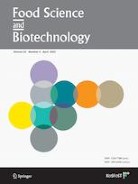
Mechanistic insights on burdock (Arctium lappa L.) extract effects on diabetes mellitus
2022 Apr 25 Food Science and Biotechnology Mondal SC, Eun JB
In conclusion, the active ingredients (isolated from different parts of the plant) found in burdock have been shown to be effective in treating a wide variety of conditions and numerous in vitro and in vivo evidences have suggested that A. lappa extract has the potential to impart therapeutic effect in diabetes due to the phytochemical content. Evidences also showed that burdock (A. lappa) extract contains inulin-type fructooligosaccharides, bioactive compounds such as chlorogenic acid, caffeic acid and its derivatives, tannins, saponins etc. which may exert positively on muscle glucose transport and insulin sensitivity rather than only inhibit the enzymatic activities. In addition, studying the acute toxicity of burdock root also revealed no toxic effects, which means the consumption of phenolic and flavone containing burdock root in foods and beverages or extract would be beneficial in alleviating diabetic complications.
Review Article Type 2 Diabetes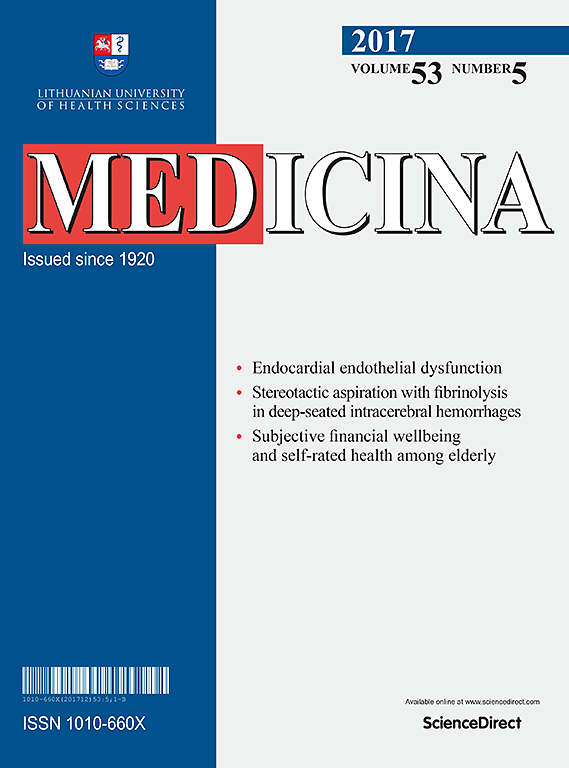
Effects of Caffeinated and Decaffeinated Coffee Consumption on Metabolic Syndrome Parameters: A Systematic Review and Meta-Analysis of Data from Randomised Controlled Trials
2021 Sep 11 Medicina Ramli NNS, Alkhaldy AA, Mhd Jalil AM
Systematic Review Meta-Analysis Metabolic Syndrome CoffeeCoffee extract supplementation significantly improves parameters of metabolic syndrome, with the effects varying according to the types and doses of coffee administered.
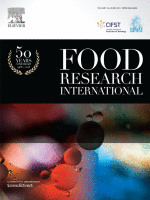
Burdock (Arctium lappa L) roots as a source of inulin-type fructans and other bioactive compounds: Current knowledge and future perspectives for food and non-food applications
2021 Mar Food Research International Moro TMA, T.P.S. Clerici M
Unlike other roots of the same family that are investigated for their content of inulin and oligofructoses (yacon, Jerusalem artichoke, and agave, for example), burdock has potential as a source of prebiotic fibers and antioxidant compounds, and can be used to replace starch (digestible carbohydrates) in various food products.
Review Article
The Beneficial Effects of Principal Polyphenols from Green Tea, Coffee, Wine, and Curry on Obesity
2021 Jan 16 Molecules Ohishi T, Fukutomi R, Shoji Y, Goto S, Isemura M
Review Article Anti-Diabetic Curry Antioxidant Green Tea Anticancer Polyphenol Wine Neuroprotective Obesity Health Benefits PolyphenolsGreen tea, coffee, wine, and curry have beneficial health effects due to the polyphenols they contain, which possess both antioxidant and pro-oxidant properties.
Research insights are moderated by the Research Hub team and offer an at-a-glance overview of interesting research findings.

2021 Medicina
Coffee extract supplementation significantly improves parameters of metabolic syndrome, with the effects varying according to the types and doses of coffee administered.
Systematic Review Coffee Metabolic Syndrome
Effects of Caffeinated and Decaffeinated Coffee Consumption on Metabolic Syndrome Parameters: A Systematic Review and Meta-Analysis of Data from Randomised Controlled Trials
Ramli NNS, Alkhaldy AA, Mhd Jalil AM

2021 Molecules
Green tea, coffee, wine, and curry have beneficial health effects due to the polyphenols they contain, which possess both antioxidant and pro-oxidant properties.
Review Article Anti-Diabetic Anticancer Antioxidant Curry Green Tea
The Beneficial Effects of Principal Polyphenols from Green Tea, Coffee, Wine, and Curry on Obesity
Ohishi T, Fukutomi R, Shoji Y, Goto S, Isemura M
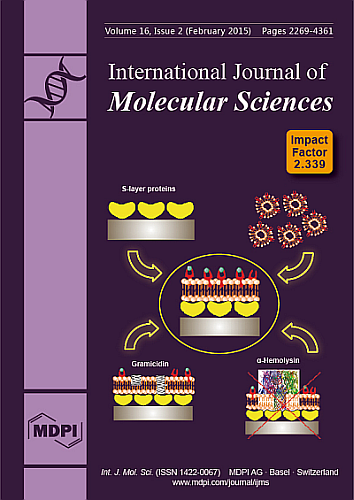
2020 International Journal of Molecular Sciences
Regular coffee consumption, due to its bioactive compounds, may have protective effects against chronic disorders and certain neurodegenerative conditions.
Review Article Alzheimer's Disease Cardiovascular Disease Coffee Dementia Neuroprotective
Neuroprotective Effects of Coffee Bioactive Compounds: A Review
Socała K, Szopa A, Serefko A, Poleszak E, Wlaź P

2020 Molecules
The major components of green tea and coffee, EGCG and CGA respectively, may have anti-cancer effects, though these effects seem to vary for different types of cancer.
Experimental Study Anticancer Coffee EGCG Green Tea
Anti-Cancer Effects of Green Tea Epigallocatchin-3-Gallate and Coffee Chlorogenic Acid
Hayakawa S, Ohishi T, Miyoshi N, Oishi Y, Nakamura Y, Isemura M
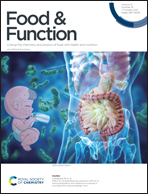
2020 Food & Function
Coffee and decaffeinated coffee appear to provide long-term protection against developing type 2 diabetes, potentially due to the influence of chlorogenic acids.
Review Article Blood Sugar Coffee Type 2 Diabetes
Protection against developing type 2 diabetes by coffee consumption: assessment of the role of chlorogenic acid and metabolites on glycaemic responses
Williamson G
Review Articles
Review articles summarise and critically evaluate the current state of research on a specific topic or field by synthesising multiple primary research studies.

Mechanistic insights on burdock (Arctium lappa L.) extract effects on diabetes mellitus
2022 Apr 25 Food Science and Biotechnology Mondal SC, Eun JB
In conclusion, the active ingredients (isolated from different parts of the plant) found in burdock have been shown to be effective in treating a wide variety of conditions and numerous in vitro and in vivo evidences have suggested that A. lappa extract has the potential to impart therapeutic effect in diabetes due to the phytochemical content. Evidences also showed that burdock (A. lappa) extract contains inulin-type fructooligosaccharides, bioactive compounds such as chlorogenic acid, caffeic acid and its derivatives, tannins, saponins etc. which may exert positively on muscle glucose transport and insulin sensitivity rather than only inhibit the enzymatic activities. In addition, studying the acute toxicity of burdock root also revealed no toxic effects, which means the consumption of phenolic and flavone containing burdock root in foods and beverages or extract would be beneficial in alleviating diabetic complications.
Review Article Type 2 Diabetes
Effects of Caffeinated and Decaffeinated Coffee Consumption on Metabolic Syndrome Parameters: A Systematic Review and Meta-Analysis of Data from Randomised Controlled Trials
2021 Sep 11 Medicina Ramli NNS, Alkhaldy AA, Mhd Jalil AM
Systematic Review Meta-Analysis Metabolic Syndrome CoffeeCoffee extract supplementation significantly improves parameters of metabolic syndrome, with the effects varying according to the types and doses of coffee administered.

Burdock (Arctium lappa L) roots as a source of inulin-type fructans and other bioactive compounds: Current knowledge and future perspectives for food and non-food applications
2021 Mar Food Research International Moro TMA, T.P.S. Clerici M
Unlike other roots of the same family that are investigated for their content of inulin and oligofructoses (yacon, Jerusalem artichoke, and agave, for example), burdock has potential as a source of prebiotic fibers and antioxidant compounds, and can be used to replace starch (digestible carbohydrates) in various food products.
Review Article
The Beneficial Effects of Principal Polyphenols from Green Tea, Coffee, Wine, and Curry on Obesity
2021 Jan 16 Molecules Ohishi T, Fukutomi R, Shoji Y, Goto S, Isemura M
Review Article Anti-Diabetic Curry Antioxidant Green Tea Anticancer Polyphenol Wine Neuroprotective Obesity Health Benefits PolyphenolsGreen tea, coffee, wine, and curry have beneficial health effects due to the polyphenols they contain, which possess both antioxidant and pro-oxidant properties.

Neuroprotective Effects of Coffee Bioactive Compounds: A Review
2020 Dec 24 International Journal of Molecular Sciences Socała K, Szopa A, Serefko A, Poleszak E, Wlaź P
Review Article Meta-Analysis Neuroprotective Coffee Type 2 Diabetes Obesity Alzheimer's Disease Parkinson's Disease Cardiovascular Disease Dementia StrokeRegular coffee consumption, due to its bioactive compounds, may have protective effects against chronic disorders and certain neurodegenerative conditions.
Clinical Trials
Clinical trials are research studies that involve people and are conducted to evaluate the safety and efficacy of new treatments or interventions, such as drugs, medical devices, or behavioural therapies.
Study Protocols
Published study protocols are detailed plans that outline the objectives, methodology, statistical analyses, and organisation of a research study that have been made publicly available for others to review and use as a reference.
Presentation Slides

Systematic Review
Coffee extract supplementation significantly improves parameters of metabolic syndrome, with the effects varying according to the types and doses of coffee administered.
Ramli NNS, Alkhaldy AA, Mhd Jalil AM

Review Article
Green tea, coffee, wine, and curry have beneficial health effects due to the polyphenols they contain, which possess both antioxidant and pro-oxidant properties.
Ohishi T, Fukutomi R, Shoji Y, Goto S, Isemura M

Review Article
Regular coffee consumption, due to its bioactive compounds, may have protective effects against chronic disorders and certain neurodegenerative conditions.
Socała K, Szopa A, Serefko A, Poleszak E, Wlaź P

Experimental Study
The major components of green tea and coffee, EGCG and CGA respectively, may have anti-cancer effects, though these effects seem to vary for different types of cancer.
Hayakawa S, Ohishi T, Miyoshi N, Oishi Y, Nakamura Y, Isemura M

Review Article
Coffee and decaffeinated coffee appear to provide long-term protection against developing type 2 diabetes, potentially due to the influence of chlorogenic acids.
Williamson G
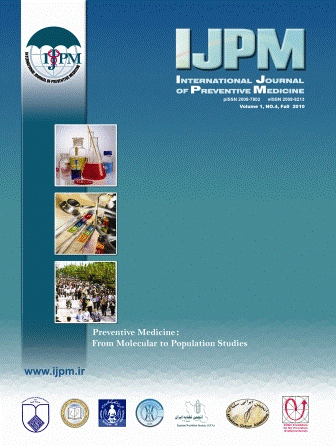
Systematic Review
Decaffeinated coffee enriched with chlorogenic acid does not significantly affect blood glucose levels in healthy humans, even though it does impact animals.
Faraji H
Executive Summary
Write an executive summary in the form of a blog article on the topic of "Research into Chinese medicine treatment for Chlorogenic Acid" summarising the research below and using language that can be easily understood by patients and avoiding medical jargon using a professional and caring tone of voice.
Write an executive summary in the form of a blog article on the topic of "Researched Chinese medicine treatments for Chlorogenic Acid" summarising the research below in an objective and easy to understand way, and using language that can be easily understood by patients. Group the article into Chinese medicine treatments first, followed by nutrition and other treatments. Avoid using medical jargon and use a professional and caring tone of voice.
Write me a concise but easy to understand executive summary on the topic of "Chinese medicine treatments for Chlorogenic Acid" based on the following research that I will give you. Your summary should be 2 paragraphs long in Australian English spelling and include references to the studies.
A Systematic Review published in 2021 in the journal Medicina found that Coffee extract supplementation significantly improves parameters of metabolic syndrome, with the effects varying according to the types and doses of coffee administered. In this systematic review and meta-analysis, the researchers sourced relevant articles from PubMed and Scopus published between 2015 and 2020. The investigation focused on randomised controlled trials that studied the impact of coffee consumption on factors like body measurements, blood sugar indices, lipid profiles, and blood pressure. Effects of green coffee extract (GCE) supplementation and decaffeinated coffee were analysed in the study. Following a meticulous extraction and analysis of data from the relevant studies, the researchers found significant improvements in parameters of metabolic syndrome upon supplementation with GCE and decaffeinated coffee. The GCE supplementation, ranging from 180 to 376 mg, was found to reduce waist circumference, triglyceride levels, systolic and diastolic blood pressure while increasing high-density lipoprotein-cholesterol levels. The intake of decaffeinated coffee reduced fasting blood glucose levels. The analysis revealed improvements in metabolic syndrome outcomes for participants consuming GCE and liquid decaffeinated coffee.
A Review Article published in 2021 in the journal Molecules found that Green tea, coffee, wine, and curry have beneficial health effects due to the polyphenols they contain, which possess both antioxidant and pro-oxidant properties. The research leverages epidemiological studies, clinical trials, cell-based studies and animal tests to examine the effects of green tea, coffee, wine, and curry -- and their key polyphenols -- on human health. The polyphenols investigated include epigallocatechin gallate in green tea, chlorogenic acid in coffee, resveratrol in wine, and curcumin in curry. The study concentrates on the workings of these polyphenols, primarily focusing on reactive oxygen species (ROS), and how they perform both anti- and pro-oxidant functions, fundamentally influencing different enzymes and factors with health contributions. In the discussion of the results, it is mentioned that the anti-oxidative actions of these polyphenols assist in the scavenging of ROS and the downregulation of the nuclear factor-κB, yielding beneficial anti-inflammatory effects. Conversely, their pro-oxidant actions appear to elevate ROS production, encouraging the activation of 5'-AMP-activated protein kinase that regulates different enzymes and factors for health improvement. However, the exact mechanism of how these polyphenols exhibit either pro- or anti-oxidant effects remains unclear. Also, the research underscores that while many studies note their health benefits, some others show no positive effects on health conditions such as obesity, suggesting that outcomes could be influenced by various study factors.
A Review Article published in 2020 in the journal International Journal of Molecular Sciences found that Regular coffee consumption, due to its bioactive compounds, may have protective effects against chronic disorders and certain neurodegenerative conditions. The paper evaluates the neuroprotective potential of the main bioactive elements in coffee: caffeine, chlorogenic acid, caffeic acid, trigonelline, kahweol, and cafestol. The analysis is focused on the coffee beverage as a complex mixture of these bioactive compounds. The comprehensive study includes in vitro and in vivo preclinical tests to determine the specific health benefits each of these compounds can offer. The results indicate that regular coffee intake may have defensive effects against a variety of enduring disorders; including cardiovascular disease, type 2 diabetes, obesity, and some forms of cancer. Additionally, an interesting correlation is found between coffee consumption and a lower risk of developing certain neurodegenerative conditions such as Alzheimer's disease, Parkinson's disease, and dementia. The study also highlights that regular coffee intake could possibly lower the risk of stroke. However, the study mentions that the mechanisms enabling these effects are yet to be fully understood.
A Experimental Study published in 2020 in the journal Molecules found that The major components of green tea and coffee, EGCG and CGA respectively, may have anti-cancer effects, though these effects seem to vary for different types of cancer. Studies were conducted across cell-based and animal trials to explore the health benefits, particularly in anticancer effects, of epigallocatechin gallate (known as EGCG) and chlorogenic acid (CGA), the predominant elements in green tea and coffee, respectively. It was observed that the results were inconsistent due to possible confounding factors. A conceivable mechanism suggested, a part of those shared between EGCG and CGA, was related to the alterations in reactive oxygen species. However, the variance in the anti-cancer effects may be attributed to the different target molecules of EGCG and CGA, signifying the site-specific differences of anti-cancer effects observed in human studies.
A Review Article published in 2020 in the journal Food & Function found that Coffee and decaffeinated coffee appear to provide long-term protection against developing type 2 diabetes, potentially due to the influence of chlorogenic acids. This research observes a considerable protective effect of coffee and decaffeinated coffee over the long term against the onset of type 2 diabetes, discovered through epidemiological studies. A complex mechanism associated with chlorogenic acids is proposed, with the theory examining their potential impact on blood sugar levels. Interestingly, the effects of decaffeinated coffee on post-meal blood sugar and insulin, if consumed with carbohydrates, is minimal, although these substances might be impacting incretin hormones. The potential effects of chlorogenic acids are examined from the perspective of not directly affecting carbohydrates digestion, but perhaps influencing glucose absorption and subsequent utilisation. Different factors, such as metabolites derived from endogenous pathways or the influence of the gut microbiota, are considered. The study proposes a need for chronic intervention studies on decaffeinated coffee, in sync with more focused in vitro studies using realistic concentrations of relevant chlorogenic acid metabolites, to further understand this protective property of coffee.
A Systematic Review published in 2018 in the journal International Journal of Preventive Medicine found that Decaffeinated coffee enriched with chlorogenic acid does not significantly affect blood glucose levels in healthy humans, even though it does impact animals. A systematic literature review was carried out using relevant keywords in prominent databases like PubMed, Google Scholar, Web of Knowledge, Science Direct, Medline, Cochrane, and Scopus. From an initial pool of 1593 articles spanning 2003 to 2018, duplicates, irrelevant titles, and abstracts were eliminated, leaving 25 potentially relevant articles. Only randomized clinical trials were considered, further reducing the list to six studies for qualitative analysis. Despite some animal studies suggesting a beneficial impact of chlorogenic acid-enriched decaffeinated coffee on blood glucose levels, the selected human studies did not indicate a significant effect among healthy individuals. While various mechanisms have been proposed to explain the lack of effect, further light was not shed on these mechanisms in this review.
Moderation Tools
Topic
Sign In
Users not signed in are limited to viewing the 5 most recent items of content.